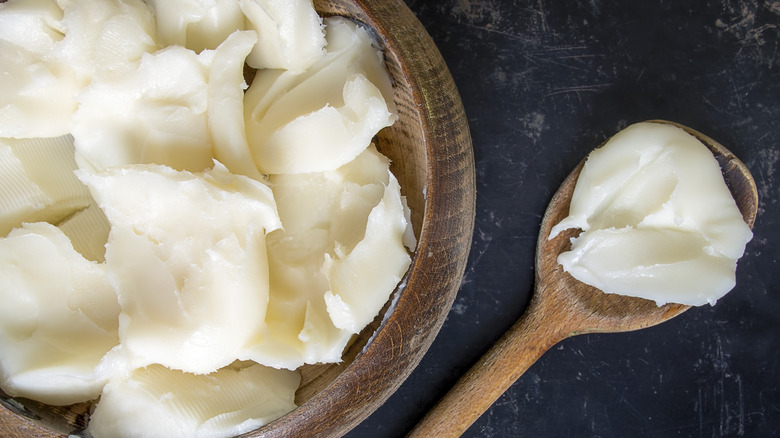What Are Triglycerides?
Thanks to Cheerios' early 2000s ad campaign, most of us have had "cholesterol" in our vernacular for years, but the term "triglycerides" is less commonly mentioned. Maybe that has something to do with the more technical nature of the word, or perhaps it's the fact that we didn't regularly hear a sweet grandpa talking about triglycerides while we ate our respective breakfasts 15 years ago. Either way, it's time we change that.
Triglycerides and cholesterol are both lipids, also known as fats — or substances in the fat family — that are insoluble in water, but soluble in organic solvents, like ether or chloroform. Along with carbohydrates and proteins, lipids are the main components of both animal and plant cells, according to RxList.
Like cholesterol, we need triglycerides in our blood to survive, but having too much of either could mean trouble. Let's take a closer look at triglycerides and how we can maintain healthy triglyceride levels.
What are healthy triglyceride levels?
Within the little universe that is your body, triglycerides play a prominent role in vitamin absorption and insulation. According to the American Heart Association (AHA), triglycerides store excess calories from the foods you eat and provide your body with energy.
The National Heart, Lung, and Blood Institute put the normal range for triglyceride levels in adults under 150 milligrams per deciliter (mg/dL), noting that anything higher could lead to health risks like coronary heart disease and stroke. Extremely high levels increase the risk of acute pancreatitis.
Triglyceride levels are broken down into categories of risk, with "borderline high" being from 150 to 199 mg/dL, "high" being anywhere from 200 to 499 mg/dL, and "very high" falling at 500 mg/dL or above (per the Mayo Clinic). In order to figure out where your triglyceride levels are, your doctor will have to perform a simple blood test.
What contributes to high triglyceride levels
As is detailed by the Mayo Clinic, when you eat, your body takes the calories it doesn't need for immediate use and turns them into triglycerides that are then stored in your fat cells. Between meals, your hormones send out the triglycerides to be converted into energy. However, if you eat more calories than you burn — particularly if you eat more foods considered high in carbohydrates — you might be elevating your triglyceride levels.
A high-carbohydrate diet is just one of the reasons you may have high triglycerides. According to the AHA, some other contributing factors can be obesity, an inactive lifestyle, smoking, alcohol consumption, pregnancy, a family history of heart disease, or chronic illnesses like diabetes, lupus, and rheumatoid arthritis.
Whether you're looking to lower your triglyceride levels or you're simply being proactive by keeping them within a healthy range, MedicalNewsToday recommends a balanced diet and limiting foods high in saturated and trans fats. It is also beneficial to limit simple carbs and sugars, and exercise regularly. If you're a regular smoker or drinker, your triglyceride levels might see an improvement if you cut out those habits, too.



